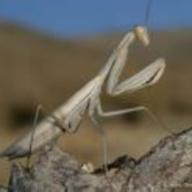係咪印毆語黎牙?
2008-01-10 3:58 am
係咪印毆語黎牙?
回答 (2)
2008-01-12 7:52 am
✔ 最佳答案
Did you mean indo-european language family? If so, these might be of some help:印歐語系是世界上分布最廣泛的語系之一。歐洲、亞洲、非洲、美洲、和大洋洲的大部分國家都采用印歐語系的語言作爲母語或官方語言。印歐語系包括約443種(SIL統計)語言和方言,使用人數大約有30億。
歷史
針對亞歐各種不同的語言,18世紀威廉·瓊斯爵士首先提岀“原始印歐語”的存在。他發現當時歐洲人已知最古老的語言其中四種拉丁語、希臘語、梵語和波斯語之間有相似之處。後來19世紀初德國的弗朗茲·葆樸對此理論進行暸系統的論證。19世紀時,學者通常將這系語言稱為“印度-日耳曼語系”,有時候也叫“雅利安語系”。但後來人們逐漸發現歐洲大多數語言與此都有關聯,名稱也轉變為印歐語。一個明顯的例子是:梵語和立陶宛語及拉脫維亞語的古口語方言之間有很強的相似性。
這些語言共同的假想祖先稱作原始印歐語。關於這個語言的起始地(Urheimat),今日的學者同意兩種説法:一是黑海和裏海北方的乾草原(見庫爾幹),二是安那托利亞。支持庫爾幹假説的將這種語言的時間推算在公元前約4000年左右;支持安納托利亞假説的將時間要再往前推好幾千年(見印度-赫梯語)。
語言特點
印歐語系各語言原來都是屈折語,原始的印歐語的名詞有3個性,3個數和8個格的變化(例如俄語這個特點保存得比較完好);廣泛利用詞綴和詞幹元音音變來表達語法意義;名詞和大部分形容詞有格、性和數的變化;動詞有時態、語態和語體的變化,主語和動詞在變化中互相呼應。另外,印歐語系各語言的詞都有重音。
但是許多語言,例如英語形態已經簡化,轉嚮分析語。
…………
http://zh.wikipedia.org/wiki/%E5%8D%B0%E6%AC%A7%E8%AF%AD%E7%B3%BB
In 1786, Sir William Jones suggested that similarities among languages such as Sanskrit, Greek, Latin, Gothic, and others were so striking as to suggest that they had sprung from a common, no longer existing source (see Lehmann's Reader, chapter 1) now called Proto-Indo-European. By the 19th century, August Schleicher's Family Tree had been proposed to model the relationships among the Indo-European languages as the branches of a tree (see Lehmann's Reader, chapter 8). Subsequently, two new branches were discovered, Anatolian and Tocharian.
......
http://59.151.21.101/search?q=cache:3Ta1BmOQt-4J:www.utexas.edu/cola/centers/lrc/iedocctr/ie-lg/+indo-european+language+family&hl=zh-CN&ct=clnk&cd=2&gl=cn&st_usg=ALhdy2_Pdh9liFFXPsWzk6jE3ejiUmlSKw
other resources that you might be interested:
http://www.google.cn/search?sourceid=navclient&aq=t&ie=UTF-8&rlz=1T4GGLJ_enCN254CN254&q=indo%2deuropean+language+family
2008-05-27 2:44 am
Quiet Maid. Quiet, from O.Fr. quiete, from L. quies (gen. quietis) "rest, quiet," from PIE base *qwi- "rest". Maid, O.E. mæden, mægden, dim. of mægð, mægeð "maid," from P.Gmc. *magadinom "young womanhood, sexually inexperienced female". 歸妹。
2008-05-26 18:46:47 補充:
Nigh. "near," O.E. neah (W.Saxon), neh (Anglian), common Gmc. (cf. O.Fris. nei, M.Du. na, O.H.G. nah, Ger. nah, Goth. nehwa). 來。
2008-05-26 19:51:22 補充:
Graph. from L. graphicus "picturesque," from Gk. graphikos "of or for writing, belonging to drawing, picturesque," from graphe "writing, drawing," from graphein "write," originally "to scratch" on clay tablets with a stylus. 卦。
2008-06-16 18:03:08 補充:
Shit. O.E. scitan, from P.Gmc. *skit-, from PIE *skheid- "split, divide, separate." 茄。
2008-08-03 18:30:55 補充:
shackle. O.E. sceacel, from P.Gmc. *skakula- (cf. M.Du., Du. schakel "link of a chain," O.N. skökull "pole of a carriage"). 桎梏。
2009-10-11 20:06:36 補充:
Fart. O.E. feortan, ult. from PIE *perd- (cf. O.H.G. ferzan, O.N. freta, Skt. pard, Gk. perdein, Lith. perdzu, Rus. perdet). 屁。
2009-10-11 20:08:04 補充:
Crescent phase. from Anglo-Fr. cressaunt, from O.Fr. creissant, from L. crescentum (nom. crescens), pp. of crescere "come forth, spring up, grow, thrive," from PIE base *ker- "to grow". 哉生魄。
2009-11-20 12:23:27 補充:
Wrong. late O.E., "twisted, crooked, wry," from O.N. rangr, earlier *wrangr "crooked, wry, wrong," from P.Gmc. *wrangaz, from PIE *wrengh- "to turn". 枉。
2010-01-18 16:42:57 補充:
Gyrovert. Cyclic changes. 周易。
2010-01-18 16:48:02 補充:
(Golden) Greeks. Testudo graeca. 龜。
2011-06-08 14:56:53 補充:
Hide. O.E. hydan "to hide, conceal; from W.Gmc. *hudjan, from PIE *keudh-, from base *(s)keu- "to cover, conceal", which is also thought to be the base of cunt. (門西)。
2011-09-26 17:52:31 補充:
Goose, large waterfowl. O.E. gos, from P.Gmc. *gans- (cf. O.Fris. gos, O.N. gas, Ger. Gans "goose"), from PIE *ghans- . 雁(鵝)。
2011-09-26 18:07:11 補充:
Pan. Old English panne, from West Germanic *panna, probably from Vulgar Latin *patna, from Latin patina, shallow pan, platter, from Greek patanē. 盤。
2014-09-17 15:45:22 補充:
Arm. "upper limb," Old English earm "arm," from Proto-Germanic *armaz, from PIE root *ar- "fit, join". 啱。
2008-05-26 18:46:47 補充:
Nigh. "near," O.E. neah (W.Saxon), neh (Anglian), common Gmc. (cf. O.Fris. nei, M.Du. na, O.H.G. nah, Ger. nah, Goth. nehwa). 來。
2008-05-26 19:51:22 補充:
Graph. from L. graphicus "picturesque," from Gk. graphikos "of or for writing, belonging to drawing, picturesque," from graphe "writing, drawing," from graphein "write," originally "to scratch" on clay tablets with a stylus. 卦。
2008-06-16 18:03:08 補充:
Shit. O.E. scitan, from P.Gmc. *skit-, from PIE *skheid- "split, divide, separate." 茄。
2008-08-03 18:30:55 補充:
shackle. O.E. sceacel, from P.Gmc. *skakula- (cf. M.Du., Du. schakel "link of a chain," O.N. skökull "pole of a carriage"). 桎梏。
2009-10-11 20:06:36 補充:
Fart. O.E. feortan, ult. from PIE *perd- (cf. O.H.G. ferzan, O.N. freta, Skt. pard, Gk. perdein, Lith. perdzu, Rus. perdet). 屁。
2009-10-11 20:08:04 補充:
Crescent phase. from Anglo-Fr. cressaunt, from O.Fr. creissant, from L. crescentum (nom. crescens), pp. of crescere "come forth, spring up, grow, thrive," from PIE base *ker- "to grow". 哉生魄。
2009-11-20 12:23:27 補充:
Wrong. late O.E., "twisted, crooked, wry," from O.N. rangr, earlier *wrangr "crooked, wry, wrong," from P.Gmc. *wrangaz, from PIE *wrengh- "to turn". 枉。
2010-01-18 16:42:57 補充:
Gyrovert. Cyclic changes. 周易。
2010-01-18 16:48:02 補充:
(Golden) Greeks. Testudo graeca. 龜。
2011-06-08 14:56:53 補充:
Hide. O.E. hydan "to hide, conceal; from W.Gmc. *hudjan, from PIE *keudh-, from base *(s)keu- "to cover, conceal", which is also thought to be the base of cunt. (門西)。
2011-09-26 17:52:31 補充:
Goose, large waterfowl. O.E. gos, from P.Gmc. *gans- (cf. O.Fris. gos, O.N. gas, Ger. Gans "goose"), from PIE *ghans- . 雁(鵝)。
2011-09-26 18:07:11 補充:
Pan. Old English panne, from West Germanic *panna, probably from Vulgar Latin *patna, from Latin patina, shallow pan, platter, from Greek patanē. 盤。
2014-09-17 15:45:22 補充:
Arm. "upper limb," Old English earm "arm," from Proto-Germanic *armaz, from PIE root *ar- "fit, join". 啱。
收錄日期: 2021-04-11 15:49:23
原文連結 [永久失效]:
https://hk.answers.yahoo.com/question/index?qid=20080109000051KK03383

